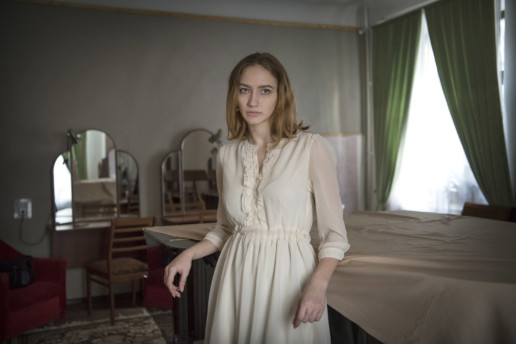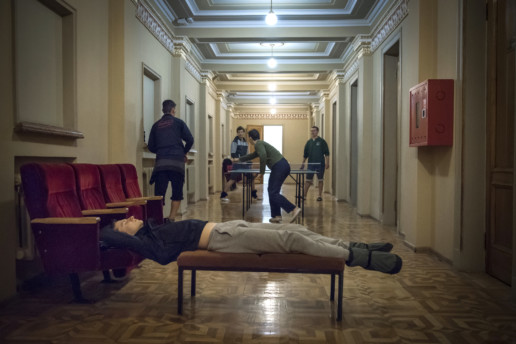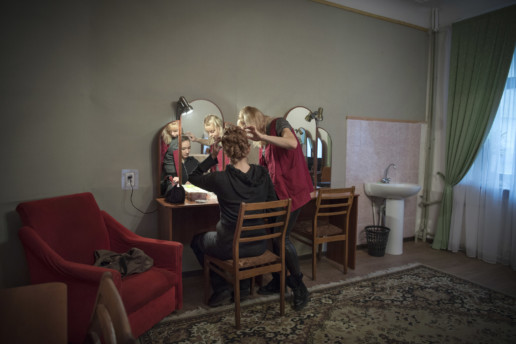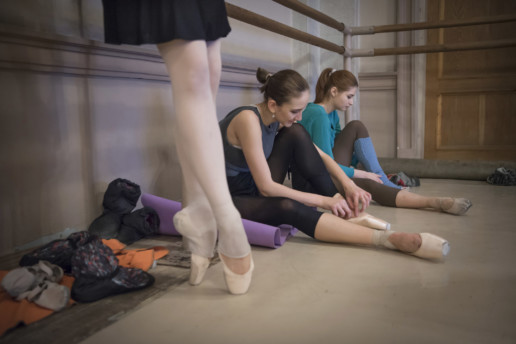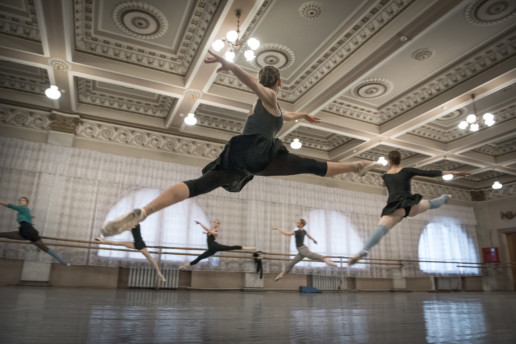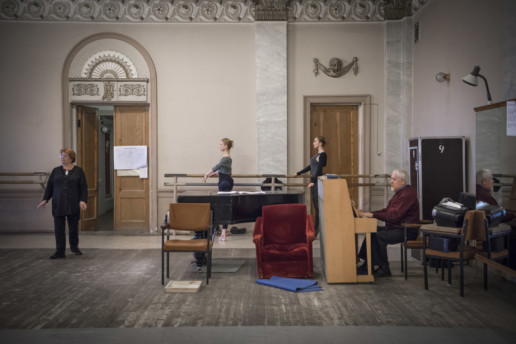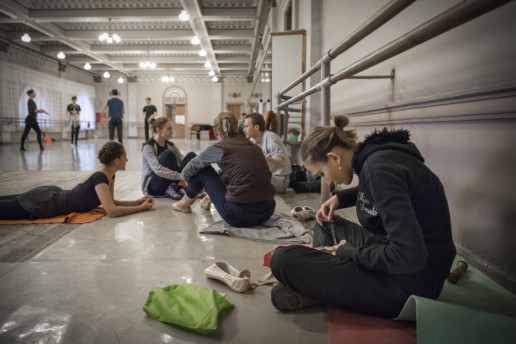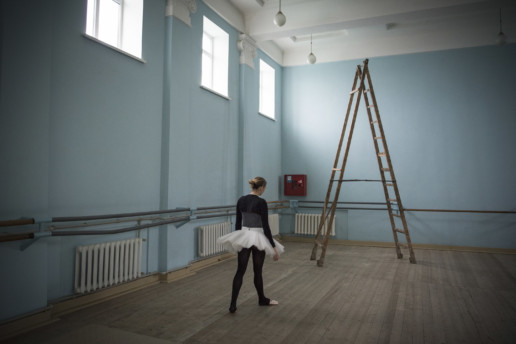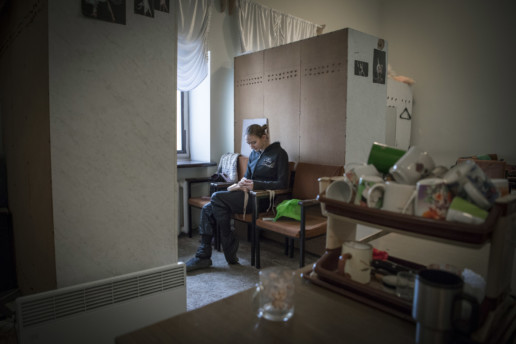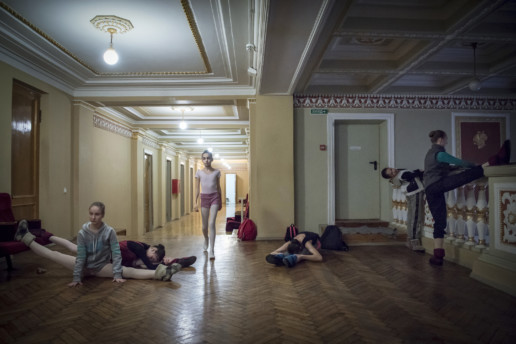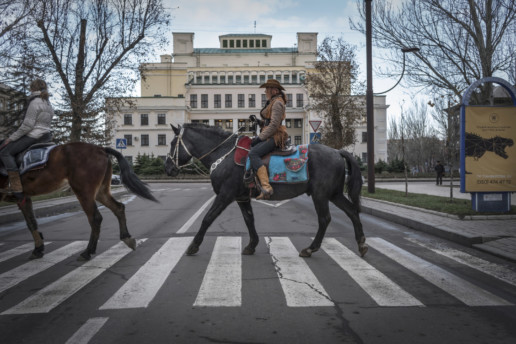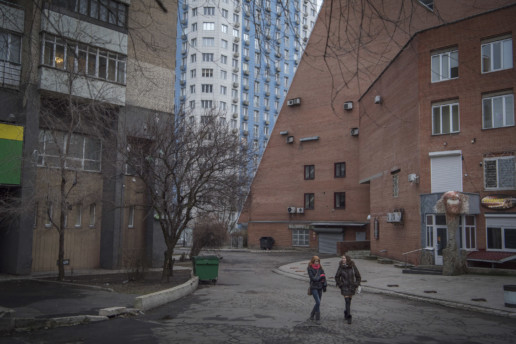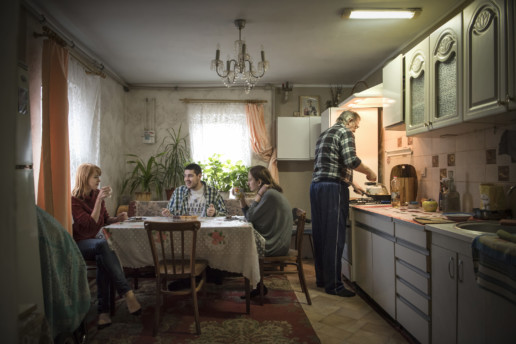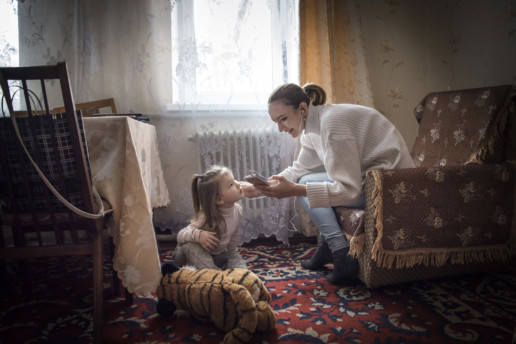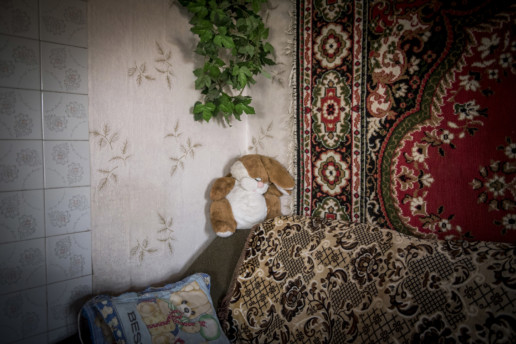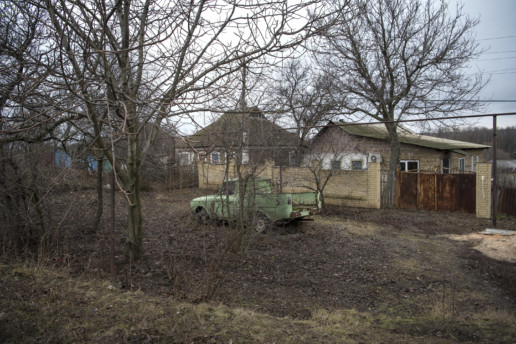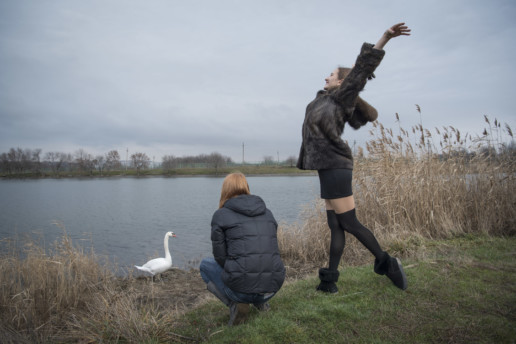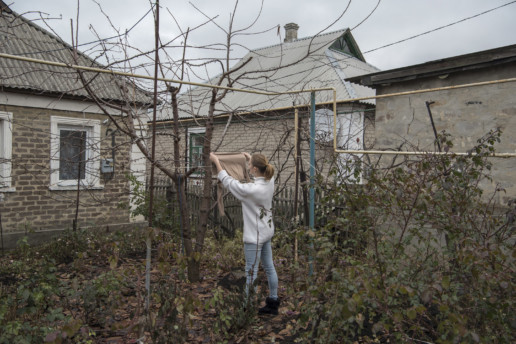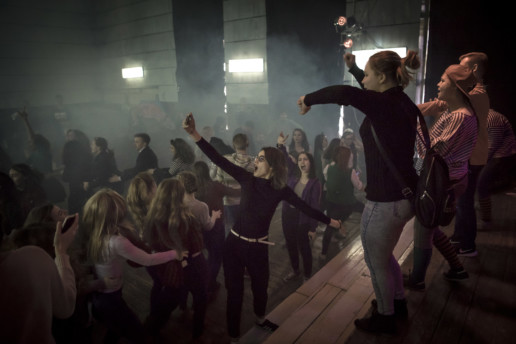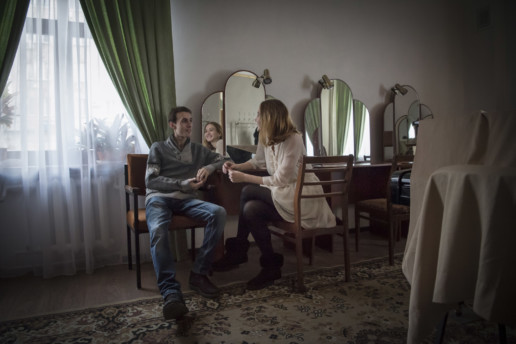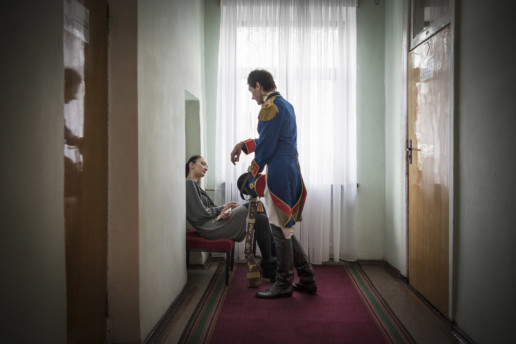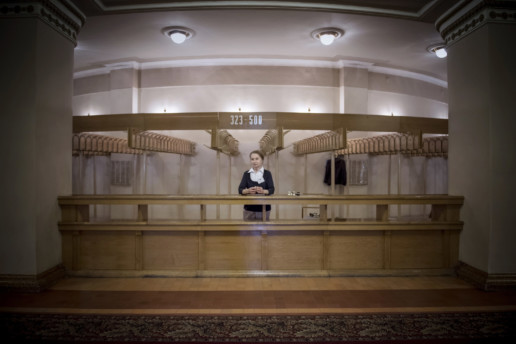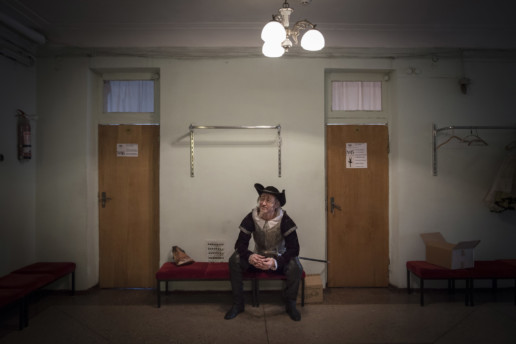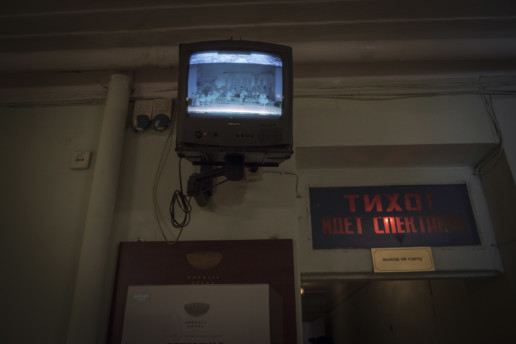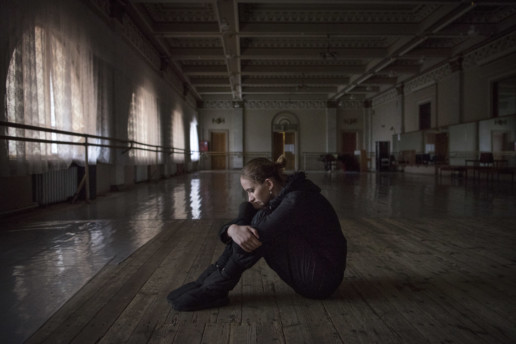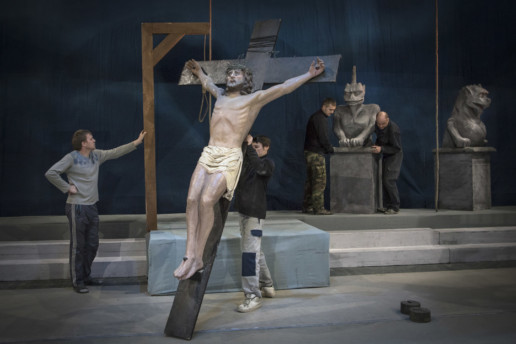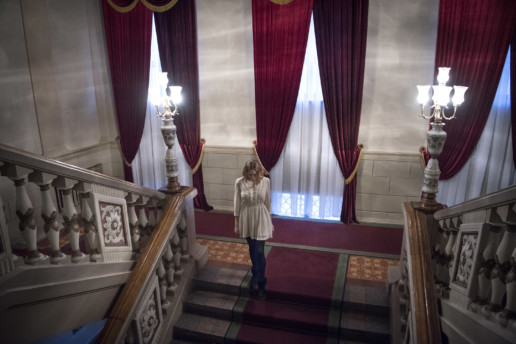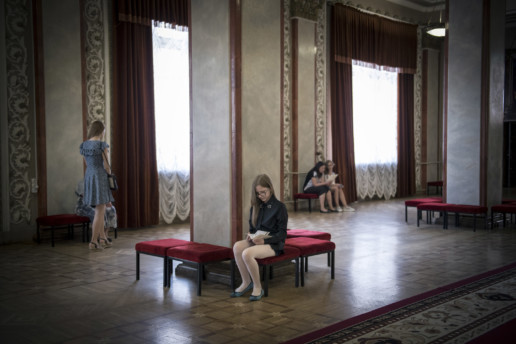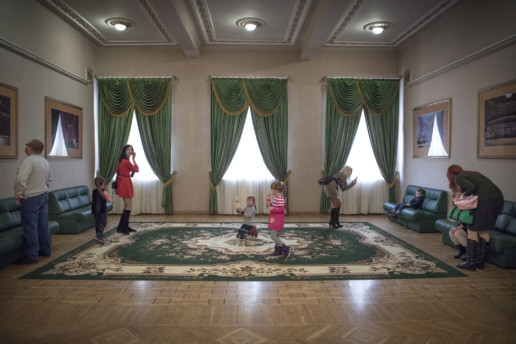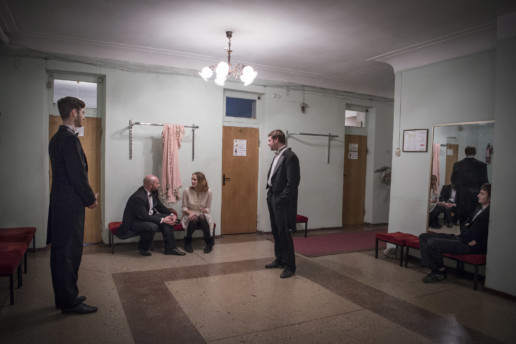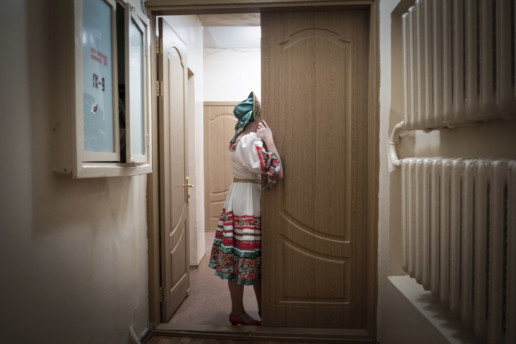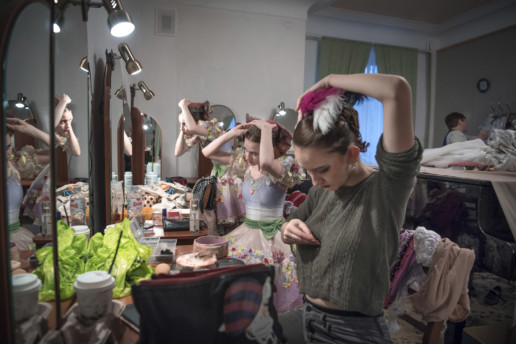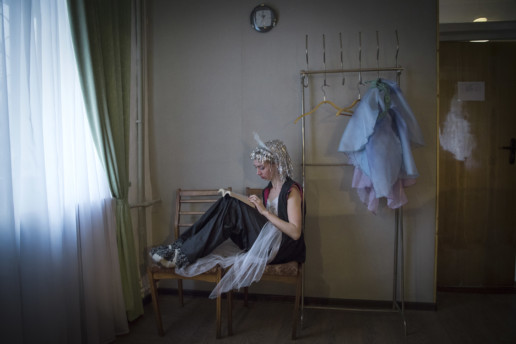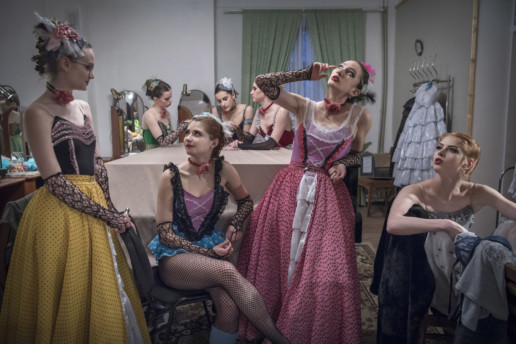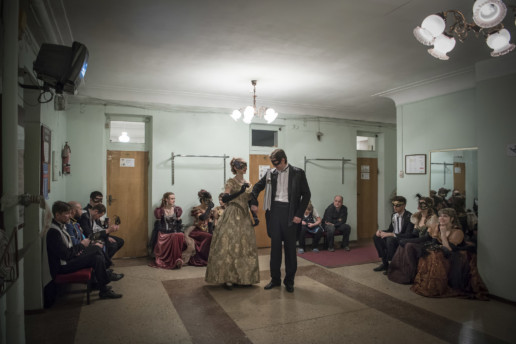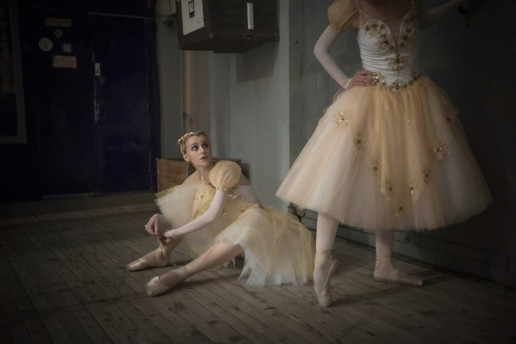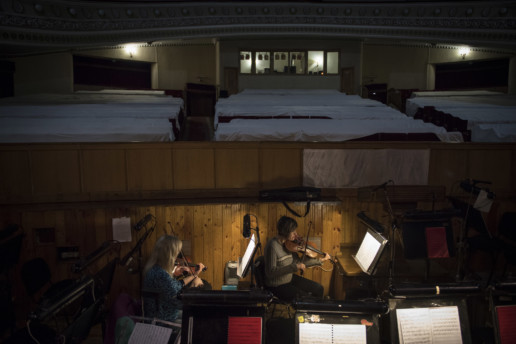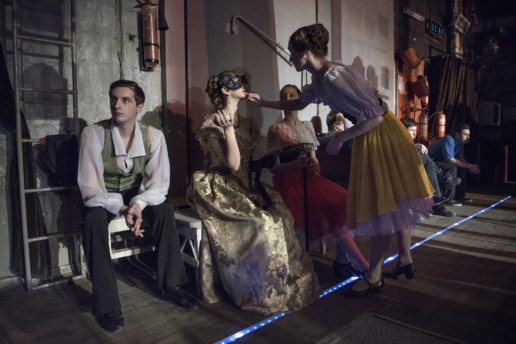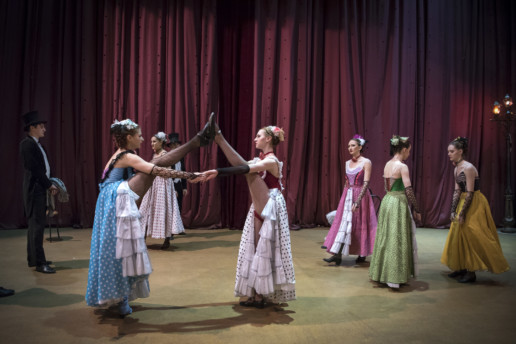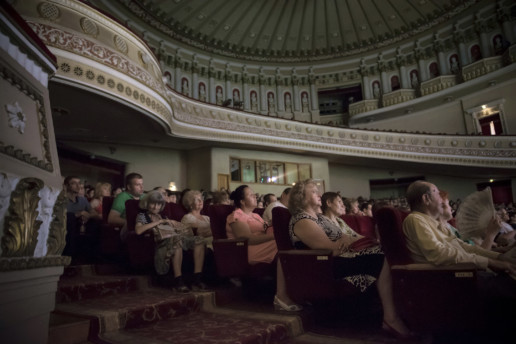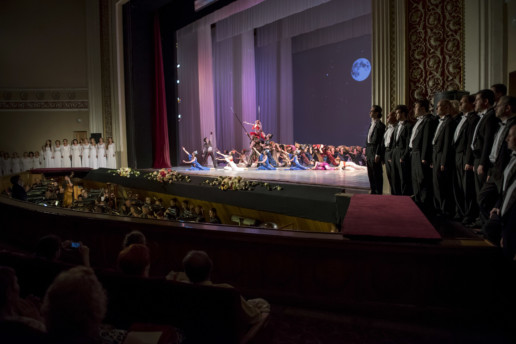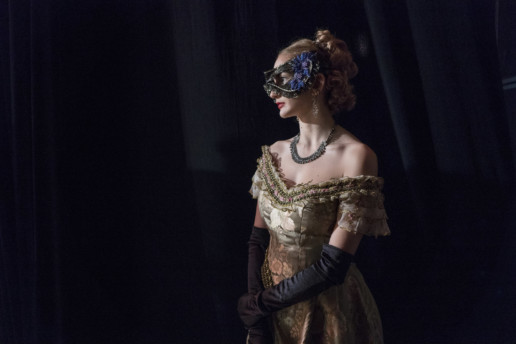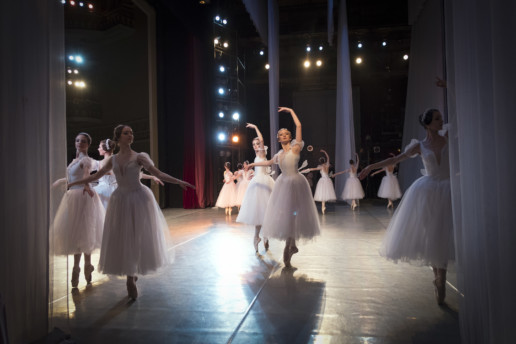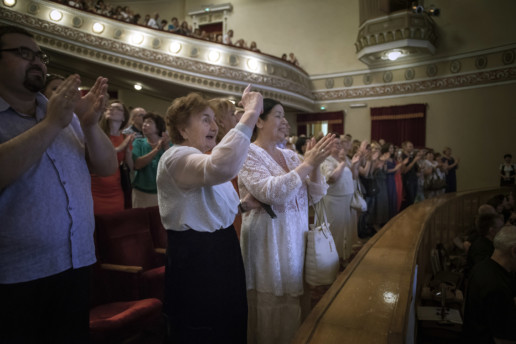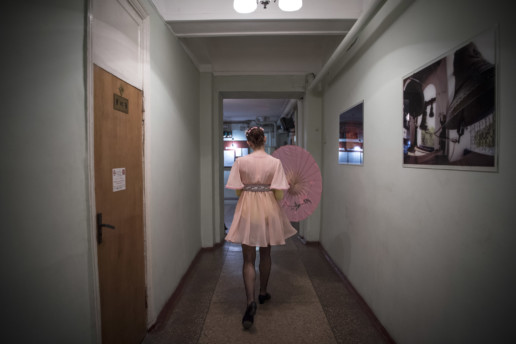Donbass stories - Alina
Despite power cuts, a shutdown of all businesses, curfews, and nearly daily shelling, residents of the rebel-held city of Donetsk flock to the Opera and Ballet Theater on weekends in search of respite from the reality of life within a battle zone. When war broke out around a third of the theater’s performers fled, including key singers and all four of its conductors. A further setback occurred when a wayward missile destroyed the warehouse where most of the stage sets were stored. The opera house was forced to close on July 2015 because of heavy clashes, then it recruited new staff and was again operative the following September. Despite the ongoing hostilities and challenging circumstances, audience figures at the 960-seat theater have been impressive since its reopening. In the ground floor cloakroom, camouflage military jackets hang among civilian furs and overcoats. Alina is a professional dancer from Donetsk and a member of the Donbass Opera and Ballet Theatre chorus. She has been studying at the theatre academy since she was a girl and throughout the entire war period she has continued to dance, convinced that keeping performances alive was one of the few ways to make sure the inhabitants of her city would not think about the horrors of war, if only for a few hours. The rhythm of Alina’s life follows the timings of the theater: from Tuesday to Friday she has ballet lessons and rehearsals, on Saturday and Sunday the performances; Monday is the only day off the performers have and she goes to visit her maternal grandparents with whom she is very close, or she meets up with her ballet girlfriends to take a walk around town or go to the disco. Even if she doesn’t intend to leave her hometown at the moment, she doesn’t rule out the possibility of moving to Russia in case of an escalation of the war.
